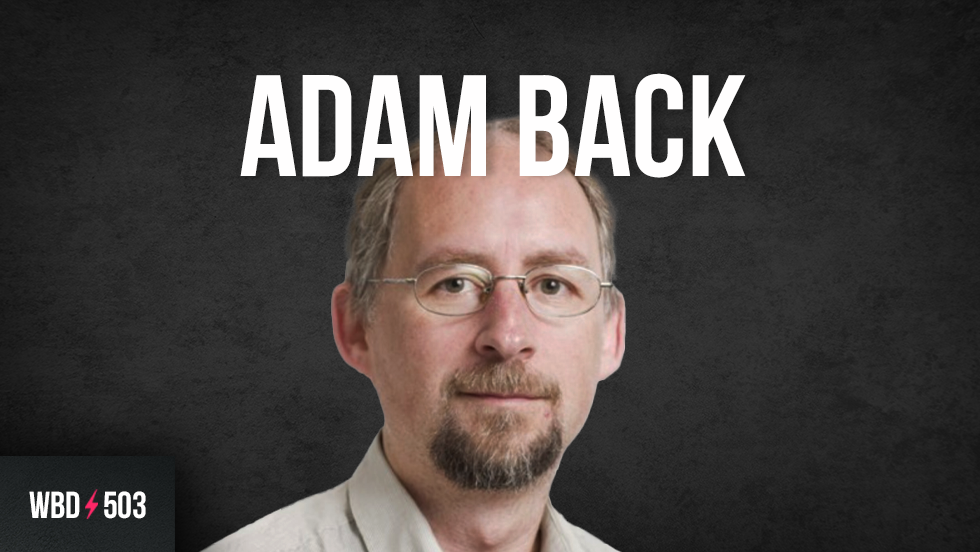
“It’s a competition of ideas… and it’s a collaborative competition of ideas. So if you propose an organised set of ideas as a proposal, some parts of them might end up being good and used, and some parts might not. And you just have to be open to that.”
— Adam Back
Adam Back, an original cypherpunk, inventor of Hashcash and co-founder and CEO of Blockstream. We discuss the controversy around BIP 119: the soft fork proposal aiming to add “covenants” to Bitcoin. We also talk about the collapse of Luna.
- - - -
Flexible smart contracts are a USP of Ethereum and other blockchains. Currently, Bitcoin only enables basic smart contract functionality, such as a timelock that specifies when a transaction can be spent. BIP 119 proposes to add more flexibility for applying restrictions to transactions via a new programme operation code (opcode) called CheckTemplateVerify (CTV).
CTV would enable conditions on spending UTXOs that would limit, not when they are spent, but how. These are referred to as “covenants”. It is envisaged CTV could significantly enhance Bitcoin by enabling a raft of new and powerful applications to be developed; these could bring new security, privacy and scalability benefits.
The concern is that CTV is a significant change and could open up potential unknown security risks, or that if this functionality is desirable, it could be possible be better achieved with a different technical approach
BIP119 has been authored and enthusiastically promoted by Bitcoin developer, Jeremy Rubin. It has been around now for 2 years, and whilst Rubin has generated support for BIP119, he has also faced criticism from prominent Bitcoiners for his approach and so far there doesn’t seem to be consensus among the protocol development community on implementing the proposal.
The consideration, approval and activation of changes to Bitcoin are methodical and slow. Further, such changes normally involve the development of competing ideas, and a collaborative approach to combine the best elements from these efforts. Notable critics feel that BIP119 is being too forcefully promoted and that more time is needed to test and consider alternatives.
The pressure to innovate will always be there. The issue at hand is Bitcoin’s USP: it has never been hacked. This has been hard-won. So it seems BIP119 isn’t going to get a formal consensus at the moment. Rubin, however, could bypass the Core developers and implement a UASF. Could we again be about to test the limits of Bitcoin’s rough consensus process?
This episode’s sponsors:
Gemini - Buy Bitcoin instantly
BlockFi - The future of Bitcoin financial services
Sportsbet.io - Online sportsbook & casino that accepts Bitcoin
Casa - The leading provider of Bitcoin multisig key security.
Ledger - State of the art Bitcoin hardware wallet
Compass Mining - Bitcoin mining & hosting
LVL - Bank on Bitcoin
BCB Group - Global digital financial Services
-----
-----
If you enjoy The What Bitcoin Did Podcast you can help support the show by doing the following:
Become a Patron and get access to shows early or help contribute
Make a tip:
Bitcoin: 3FiC6w7eb3dkcaNHMAnj39ANTAkv8Ufi2S
QR Codes: Bitcoin
If you do send a tip then please email me so that I can say thank you
Subscribe on iTunes | Spotify | Stitcher | SoundCloud | YouTube | Deezer | TuneIn | RSS Feed
Leave a review on iTunes
Share the show and episodes with your friends and family
Subscribe to the newsletter on my website
Follow me on Twitter Personal | Twitter Podcast | Instagram | Medium | YouTube
If you are interested in sponsoring the show, you can read more about that here or please feel free to drop me an email to discuss options.
Activity